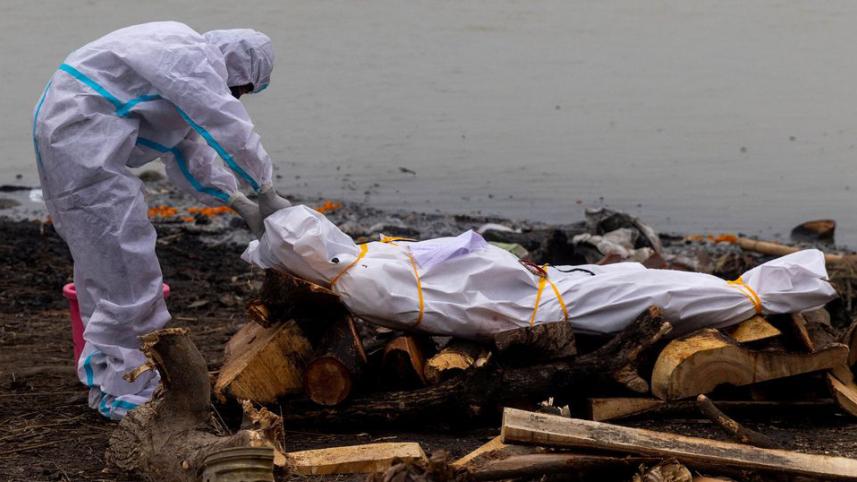6-8 million may have died in pandemic

Official tolls showing the number of deaths directly or indirectly attributed to the Covid-19 pandemic are likely to be a "significant undercount," the World Health Organization said yesterday, saying 6-8 million people may have died so far.
Presenting its annual World Health Statistics report, the WHO estimated that total deaths from the Covid-19 pandemic in 2020 were at least 3 million last year or 1.2 million more than officially reported.
"We are likely facing a significant undercount of total deaths directly and indirectly attributed to Covid-19," it said.
The UN agency officially estimates that around 3.4 million people have died directly as a result of the Covid-19 pandemic by May 2021.
"This number would truly be two to three times higher. So I think safely about 6 to 8 million deaths could be an estimate on a cautionary note," said Samira Asma, WHO's assistant director-general in its data and analytics division at a virtual press briefing.
WHO data analyst William Msemburi said that this estimate included both unreported Covid-19 deaths as well as indirect deaths due to the lack of hospital capacity and restrictions on movements among other factors.
The WHO did not give a breakdown of the figure, referred to by health experts as "excess mortality."
"Acknowledging that the reported Covid numbers are only a fraction of this full impact, we have been looking at the excess mortality attributable to Covid-19 for the year 2020," Msemburi said.
The WHO said its excess death estimates were based on data analysis where possible, but also statistical modelling, due to a "critical data gap" in many countries, especially in terms of death registration.
The pace of the coronavirus pandemic slowed around the world for a third week in a row. The number of new daily cases around the world dropped by 14 percent last week to 638,600, according to an AFP tally.
Despite the slowing of the infections, India is now facing a new threat in the form of mucormycosis, or "black fungus," a potentially serious complication which causes blurred or double vision, chest pain and breathing difficulties, have surged in India, mostly among Covid-19 patients.
The country yesterday said that it was working to alleviate a shortage of a medicine used to treat a rare fungal disease hitting Covid-19 patients as its healthcare system reels under a massive wave of coronavirus infections.
At least 7,250 such cases have been found across the country as of May 19, local media reported.
India has the second-highest tally of Covid-19 cases in the world and has been reporting around 250,000 infections and 4,000 deaths daily.
With mucormycosis cases rising, India's health ministry said it was looking to rope in more companies to produce the antifungal drug amphotericin B used to treat it and also increase imports.
That would lead to a nearly 250% increase in supply to around 570,000 vials in June, the ministry said yesterday.
In Europe, EU member states reached a deal Thursday paving the way for a Covid-19 certificate to open up travel in Europe.
The deal will allow anybody living in the EU's 27 countries to secure a digital health pass by the end of June that displays their vaccination status, results of Covid-19 tests or recovery from a coronavirus infection.




 For all latest news, follow The Daily Star's Google News channel.
For all latest news, follow The Daily Star's Google News channel.
Comments